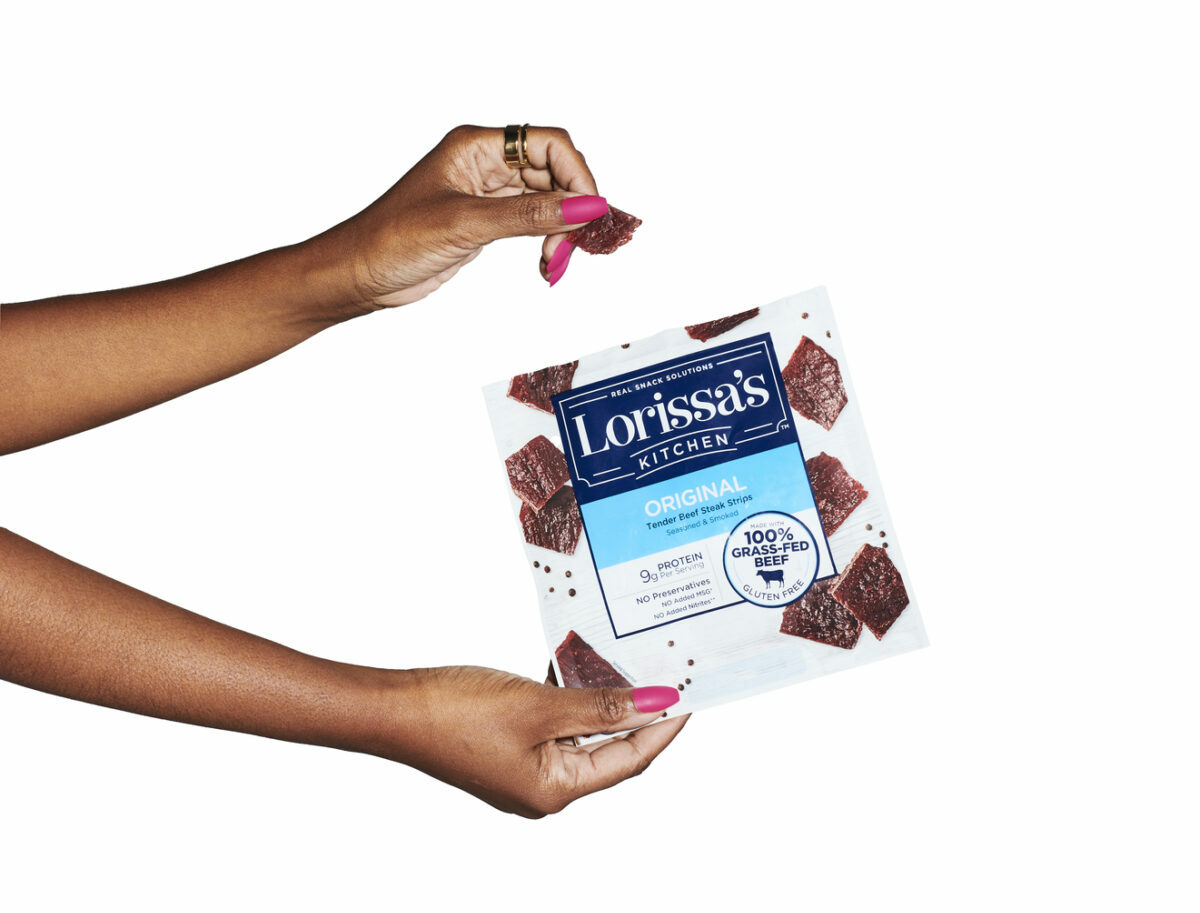
Turkey Jerky vs Beef Jerky: Which Is Best?
When it comes to jerky, there are so many options to choose from. While most people think of beef jerky, there’s also chicken jerky, venison jerky, and even turkey jerky.
For a while now, turkey has been thought to be a healthier option than other meats due to its lower fat content and other factors. But, is it truly the better option when it comes to jerky?
The truth is, it depends. To find the right jerky snack for you, you’ll need to consider what flavor profile you like and what you’re looking for when it comes to nutrition. Since jerky is a source of protein and other nutrients, you can’t go wrong.
Nutrition in Turkey Jerky vs Beef Jerky
Is turkey jerky nutritious? You bet. But so is beef jerky. To best understand the differences, let’s dive into the nutritional facts for each.
Turkey Jerky Nutrition
According to the USDA, here’s what you’ll find inside a typical serving size (one ounce) of turkey jerky as an average.
- 11g of protein
- 5.99g of carbs
- 5.01g of sugar
- 270mg of sodium
Turkey jerky also contains certain vitamins and minerals, including vitamin B and iron. Be sure to check the package of any product you purchase to ensure you know what’s in your jerky.
Beef Jerky Nutrition
What’s inside your favorite beef jerky? According to the USDA, one ounce of beef jerky may contain:
- 116 calories
- 9.41g of protein
- 3.12 carbs
- 7.26g of fat
- 2.55g of sugar
- 0.51g of fiber
- 505mg of sodium
Just like turkey jerky, beef jerky also contains vitamins and minerals. Nutritionals can vary by brand and flavor, so be sure to check the individual product bag for accurate numbers on your product.
What’s In Turkey and Beef Jerky?
With the above nutritional facts, we can start to see the key differences between turkey jerky and beef jerky. By understanding these differences and the facts about both, you can make a choice that’s right for you and your family. Still unsure? Consult a doctor for guidance about what is right for you.
Fat
It’s true that some beef jerky can be higher in fat than turkey jerky. After all, white meat is typically lower in fat than red meat.
Fat plays an important role in our bodies, especially if you’re an active person. Fat is a source of critical fatty acids that your body doesn’t make itself. There’s a difference between saturated and unsaturated fats. You can read more about it in the Dietary Guidelines for Americans, but the 101 is it’s recommended that saturated fats (think butter, lard, cheese) are limited to 10% of calories per day, while unsaturated fats (think vegetable oil, nuts, fish oil) are a preferred fat that can help improve cholesterol levels and have other positive health implications (Mayo Clinic).
The key to remember is moderation. Any healthy and balanced diet should include some fat each day.
Protein
Both beef jerky and turkey jerky contain protein that you can use to help you reach your daily goal.
According to health experts, women should have around 46 grams of protein per day while men should have around 56 grams of protein. Of course, this number may be lower or higher depending on your lifestyle.
Sodium
Any kind of jerky is going to contain sodium due to the cooking and curing process. Jerky is made by placing it into a curing solution and then drying it. And salt is one of the key ingredients in the curing process.
Again, moderation is key. A high sodium diet can have health concerns so it’s best to consult your doctor if you’re concerned about your sodium intake.
Red vs White Meat Jerky: Which Is Healthier?
Let’s recap. Most of the differences between turkey jerky and beef jerky stem from the differences in red meat vs white meat. Red meat is red when raw and includes beef, lamb, and more. White meat is white when raw and includes turkey, chicken, and other cuts of white meat.
A common idea is that white meat is better for you than red meat. This isn’t necessarily true. Which option is better for you depends on your goals and your lifestyle. If you’re looking for protein, you can’t go wrong with turkey or beef.
Consider your nutritional needs to make the best decision for you and your family. And remember, when a part of a balanced diet, any kind of jerky can be a good snack option.
What Are the Other Differences Between Turkey & Beef Jerky?
Beyond nutrition, there are other key differences between turkey jerky and beef jerky. Two of these differences include the texture of the meat and its taste.
Texture of Beef and Turkey Jerky
Beef jerky comes in a variety of textures. For example, some jerky is firm with a “rip and tear” texture that’s more dry and leathery. Other beef jerky types are softer and moist with a slight chew. On the other hand, turkey jerky tends to be a bit softer in texture than beef jerky.
Taste of Beef and Turkey Jerky
Both beef jerky and turkey jerky come in a variety of flavors from teriyaki to sweet and spicy. Turkey often has a slightly simpler, less meaty flavor than beef. Regardless, they’re both delicious.
Need a Quick Protein Snack? Try Beef Steak Strips by Lorissa’s Kitchen
Your need for protein doesn’t stop when you’re busy. You need fuel to help keep up with everything life throws your way. Lorissa’s Kitchen beef steak strips are an easy grab-and-go, wholesome snack. Check out our products to find a strip you’ll love.
Lorissa’s Kitchen does not provide medical advice, diagnosis, or treatment. Any information published on this website or by this brand is not intended as a substitute for medical advice, and you should not take any action before consulting with a healthcare professional.


